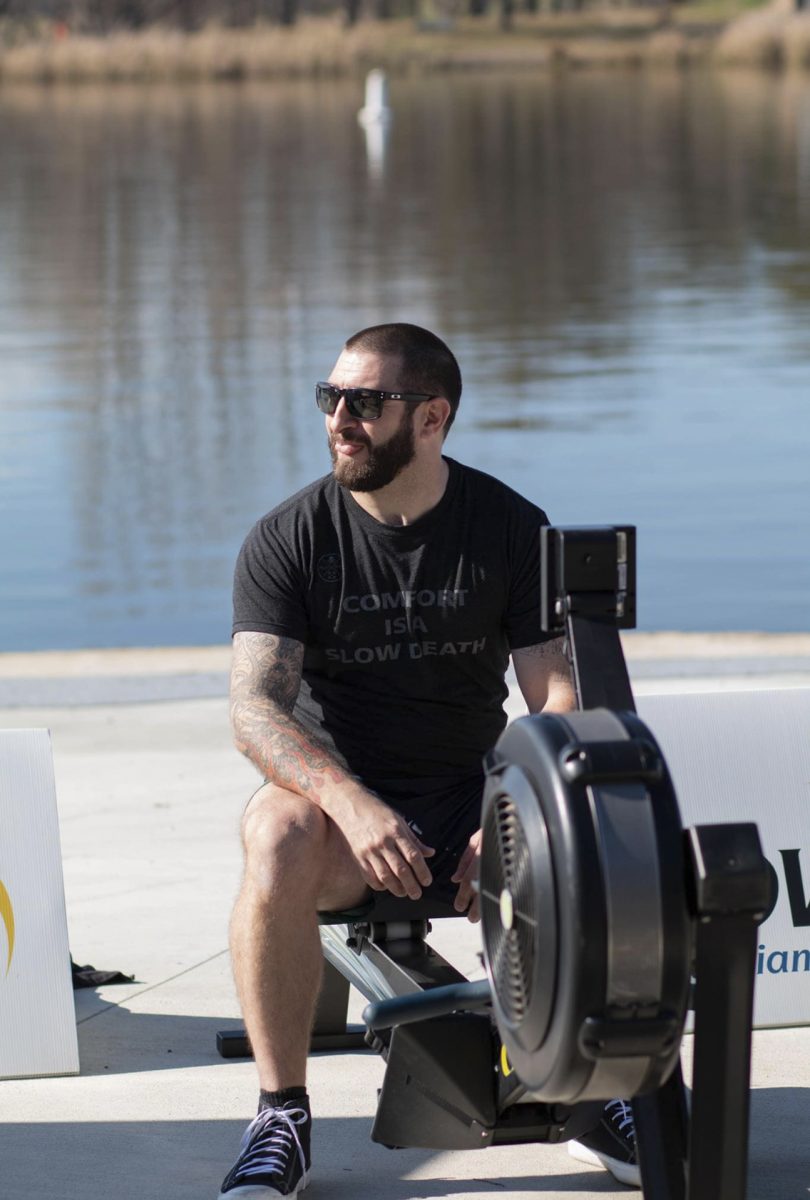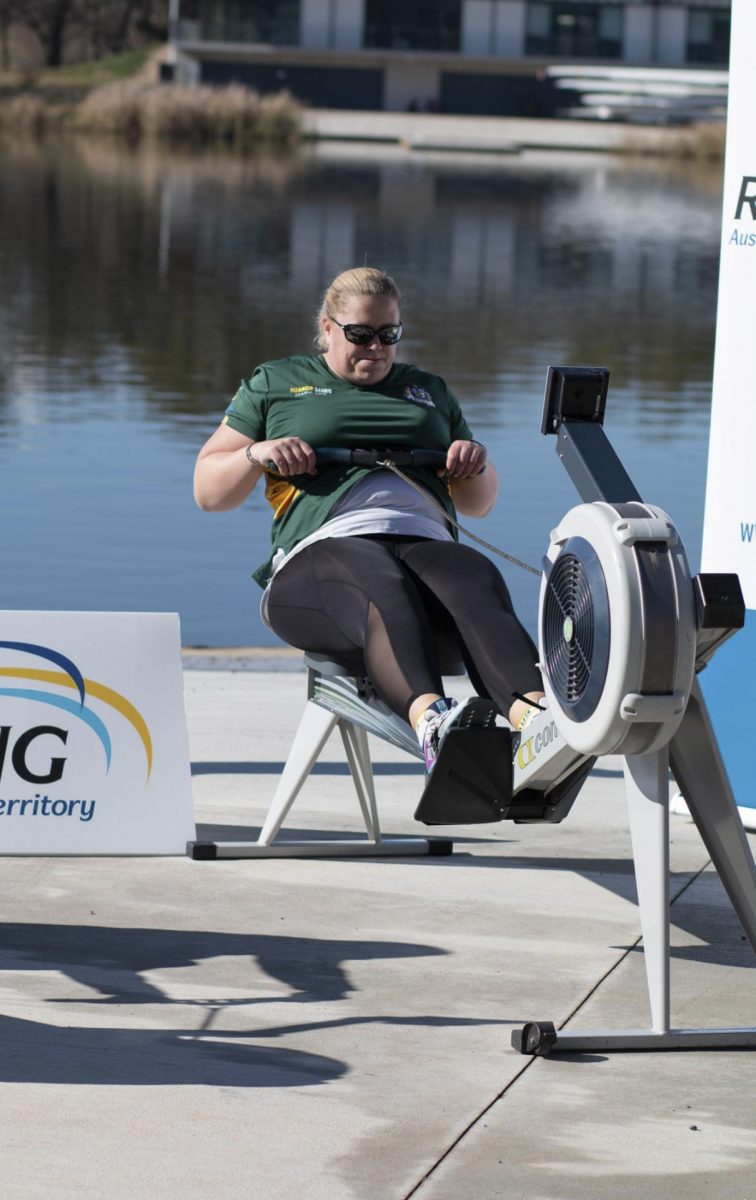
The program run through Rowing ACT has been helping Gary Wilson transition back into the community after suffering a brain injury while serving in Afghanistan. Photos: Supplied.
Gary Wilson’s worst nightmare became a reality in 2010 when a Black Hawk helicopter he was in crashed in Afghanistan, leaving the veteran with a crushed foot, broken nose, jaw, ribs and a severe traumatic brain injury that left him in a coma for three months.
He was one of the luckier ones.
Four coalition personnel, including three commandoes, were killed in the crash.
After being discharged from the Army last year following two decades of service, he found that getting back into a daily routine was harder than it seemed.
“Initially it was difficult [adjusting to civilian life] because I had lost my community,” he said
Feeling lost and isolated after being discharged from the military is a common feeling among veterans, who also suffer high rates of post-traumatic stress. It is exactly what happened to 15-year veteran Brigid Baker when she was discharged in 2017.
However, a new sports program is helping veterans in the ACT get back on their feet and back into the community, putting their social and mental wellbeing at the forefront of the recovery process.
New ACT Government grants of up to $10,000 for veterans’ support programs have allowed Rowing ACT to purchase a number of indoor rowing machines and set up a veteran-specific program.
“Sport has provided me with an outlet. It allows me to be myself once again and provided me with a community I no longer had once I was discharged,” said Brigid as she still works towards adjusting to civilian life and finding her place within a new community.

Brigid Baker is encouraging veterans in the ACT to get involved in sports programs and rebuilt their networks with other returned servicemen and women.
“It really does give you a sense of worth and something to work towards.”
Initially, Brigid started to isolate herself further and further from the community when she returned to a civilian life plagued with post-traumatic stress from her time serving in the Army.
“Once I did take that first step [back into sport] I found that I was amongst friends and I was in a protected and safe space. I was able to be myself and now I have this amazing friendship network,” she said.
“Everyone has a shared experience so they understand and they get it and you are able to relax a lot more and enjoy the activities. It has a myriad of applications for both mental and psychical rehabilitation and for me that has been absolutely phenomenal.
“The more exposure we can give to veterans the more the will be able to understand what this can provide for them.”
The indoor rowing program also helped empower Gary and his family as they were able to start training together again with other physical activities being too much for his disabilities to handle.
“It has been a key contributor to his recovery and his rehabilitation,” Gary’s wife Renee said.
“It has given him an option where exercise would have been too painful for him and we have seen him going from strength to strength – it has given him a bit of confidence back and now he has got a bit of strength back and wants to be a personal trainer himself.
“[The difference to our family] has been massive. Particularly with a brain injury, you get more and more of him coming back to you.”
Executive Officer of Rowing ACT Stuart John says the natural comradery and sense of competition between veterans are what makes the program so successful and so beneficial for returned servicemen and women.
“I had some immediate family members who served over in Afghanistan about 10 years ago and through them and their friends they served with, you come back a changed person,” he said.

Veterans in the ACT are being given a helping hand transitioning back into normal life through new ACT Government grants.
“When you are in a group of people who have gone through similar experiences as well, that is a major part of it, all of a sudden you are reaching out and have people who are with you that have been through the same types of things.”
While reaching out can be hard, more encouragement and support for suffering veterans will help them return from their social isolation and help their transition to civilian life, both of the veterans said.
“In the Army and in Defence you always compete against your mates, so bring your family down, bring your mates down to compete against them and you always go as fast as you can to beat your mates,” Gary said.
Minister for Veterans, Gordon Ramsay, has urged Canberrans to apply for the grants, saying that the funding will help organisations deliver meaningful programs and support their communities.
The next Veterans & Families Indoor Rowing Program commences in September 2020. To learn more, visit Rowing ACT.
Applications for the 2020-21 Veterans Grant Program, with a pool of $70,000, close at 5 pm on Friday 30 October.
To apply please visit http://www.communityservices.act.gov.au/home/grants.












